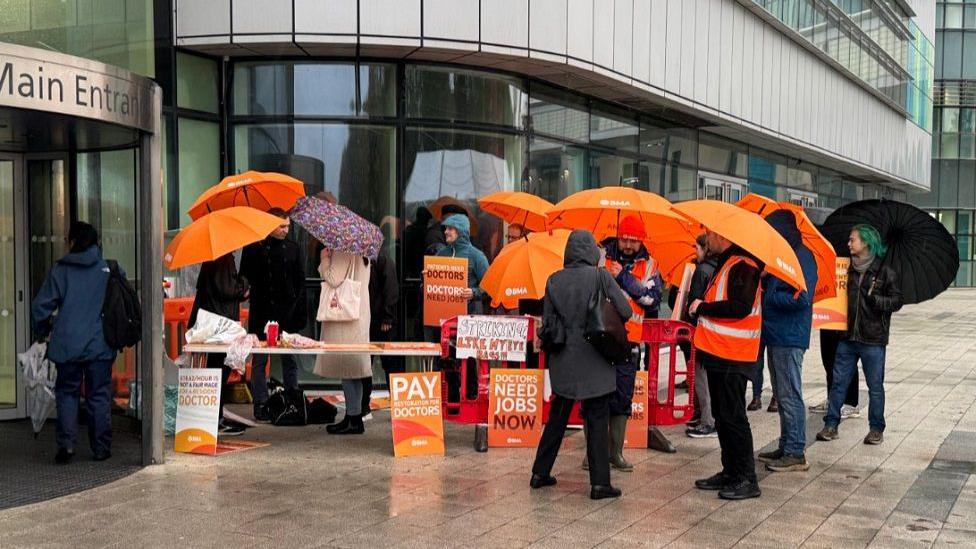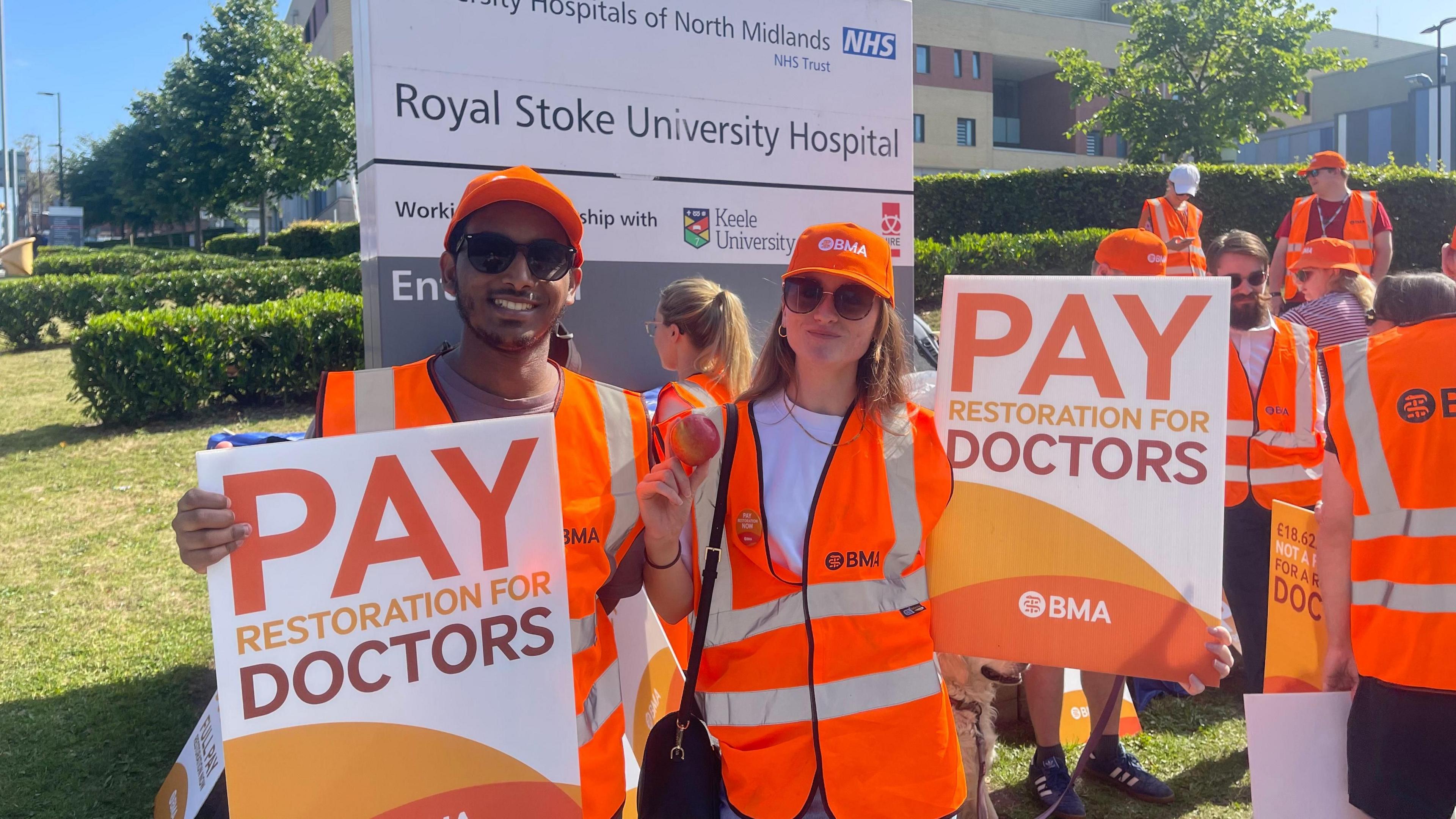Doctor strikes over temporary contract frustration

Dr Poppy Brownsaid she was frustrated with being on temporary 12 month contracts in accident and emergency
- Published
Frustration over temporary contracts was one of the reasons a West Midlands doctor said she was taking strike action.
Dr Poppy Brown, 26, said she was frustrated with being on temporary 12 month contracts in accident and emergency when she wanted to do more for patients.
Resident doctors at Birmingham's Queen Elizabeth Hospital, University Hospitals Coventry and Warwickshire and elsewhere are taking action as staff oppose new cuts to pay rates for additional work.
The walkout in England by resident doctors, the new name for junior doctors, runs until 07:00 GMT on Wednesday. Health Secretary Wes Streeting said doctors going on strike again over pay was "inflicting pain and misery" on patients.
"I would like to become an emergency medicine consultant eventually and in order to do that I need to get a training post in emergency medicine," Dr Brown said.
"I've applied for training for the past two years and I haven't been able to get a training post because of the competition."
"It's very frustrating, it feels very insecure. I would like to progress in my career. I would like to train to become a higher level so that I can do more for patients but at the moment I just kind of feel stuck where I am."
Dr Peter Fahey, co-chair of the British Medical Association West Midlands Resident Doctors Committee, said this year there were 10,000 training jobs but there were 30,000 doctors who applied for them.

The strikes are expected to last for five days
Dr Ben Cowdry, a striking Birmingham GP registrar, added he felt the public did have sympathy when he explained the situation about "the jobs crisis within the NHS".
He said patients were "…waiting months if not over a year to see a specialist in a hospital setting and the way to resolve this was to train more of our own doctors and ensure that people get into those training places so that we have consultants in the future who can bring down those waiting lists."
The Queen Elizabeth Hospital is currently grappling with rising flu admissions, alongside the five day strike.
When visiting the Royal Orthopaedic Hospital in Birmingham on Thursday, Streeting said he "couldn't afford to go further on pay this year".
"What we can do is bring forward a thousand more speciality training places to help resident doctors progress with their careers," he said.
"I'm willing to cancel fees around their exams and portfolios and lots of out of pocket expenses, and even after that the BMA have decided, they are still going out on strike with all the untold disruption it causes to patients, to other NHS staff who are picking up the pieces."
University Hospitals Coventry and Warwickshire (UHCW) NHS Trust added in a statement that plans are in place to ensure patient safety across all its services during the strike, which is due to end next Wednesday.
Kara Maitra, chief operating officer at UHCW, said patients have been advised to attend appointments as normal and people will be contacted if any treatment needs to be rescheduled.
"We are aiming to maintain as much routine work as we possibly can but in some instances, we may need to make decisions that enable us to focus completely on our seriously ill/injured patients and allow us to keep urgent, emergency care services running," she said.
Get in touch
Tell us which stories we should cover in Birmingham and the Black Country
Follow BBC Birmingham on BBC Sounds, Facebook, external, X, external and Instagram, external.
- Published3 hours ago

- Published25 July

- Published25 September
